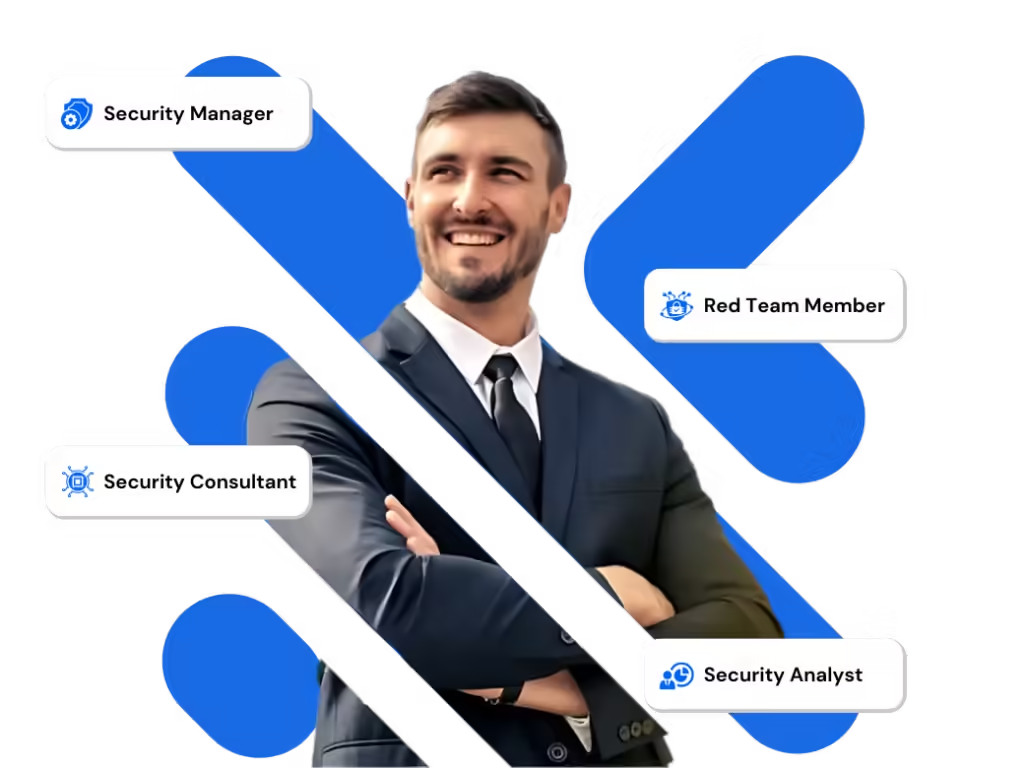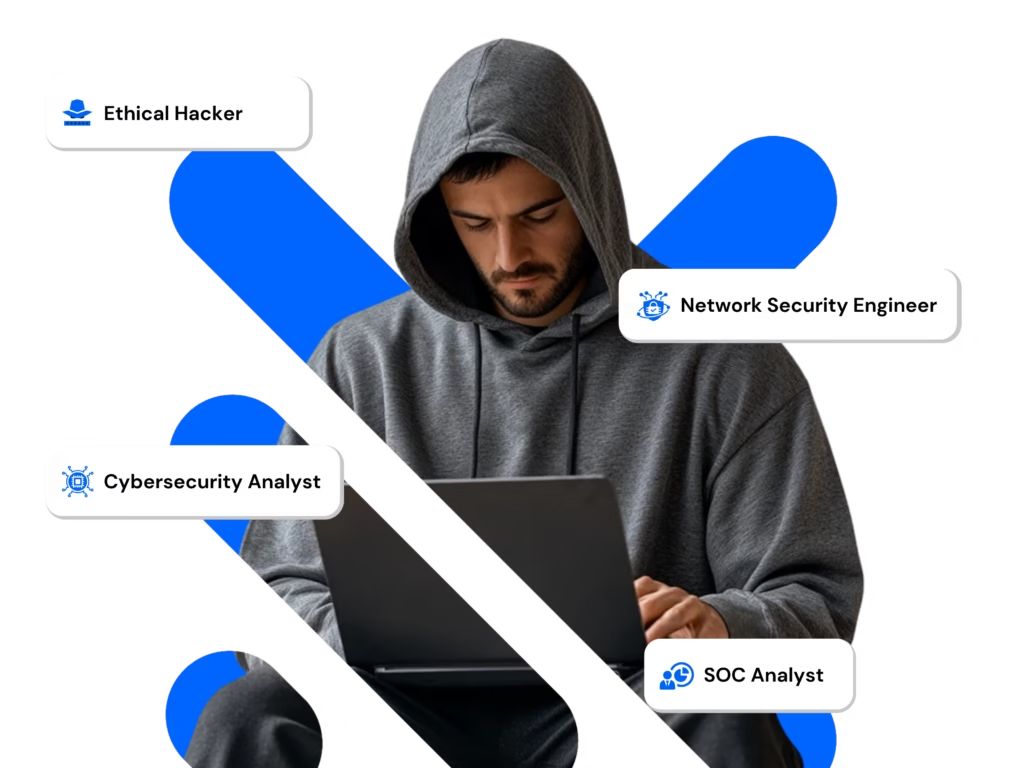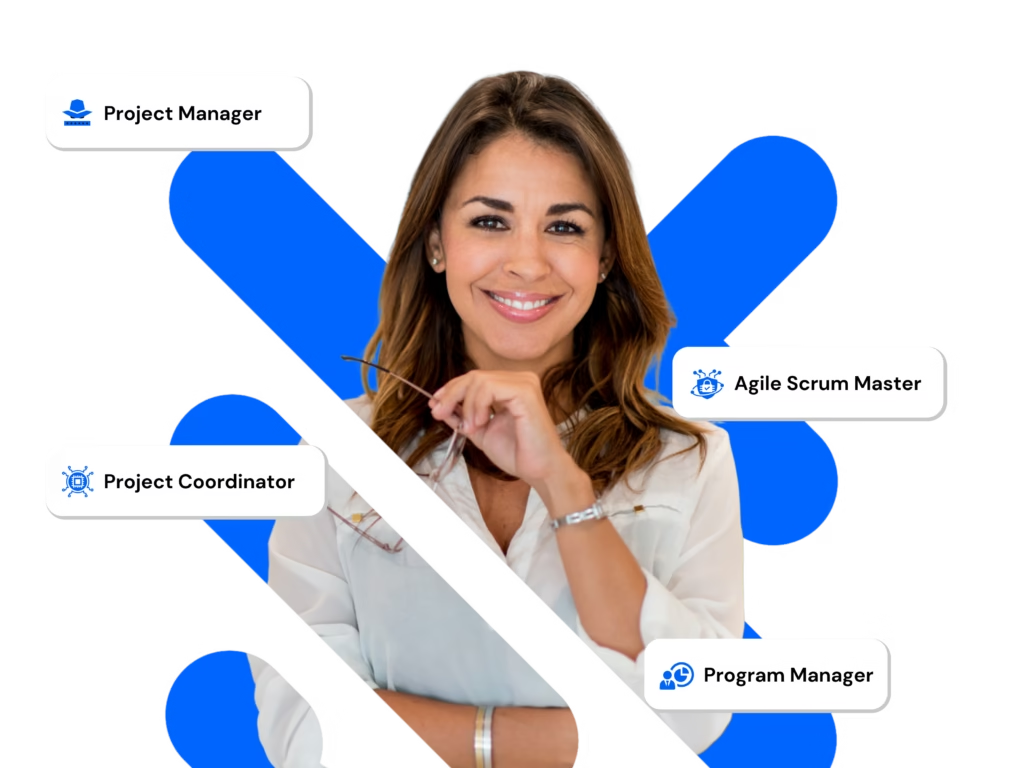
As technology continues to evolve rapidly, professionals in the IT industry are constantly seeking ways to stay competitive and enhance their skill set. Docker Certified Associate certification has emerged as a valuable credential for individuals looking to demonstrate their expertise in Docker, a popular platform for developing, shipping, and running applications. This certification has become integral in the world of DevOps and software development. The Docker Certified Associate Certification is designed to validate an individual’s expertise in working with Docker and demonstrate their proficiency in containerization technology. To prepare for this, many candidates opt for Docker Certified Associate training programs that provide in-depth knowledge and hands-on experience.
In this article, we will explore the value of obtaining the Docker Certified Associate Certification, its benefits, comparison with other certifications, exam preparation tips, career opportunities, real-world applications, and success strategies for aspiring candidates.
Overview of Docker Certified Associate Certification
Here’s the overview of the Docker Certified Associate Certification presented in a table format:
| Feature | Details |
|---|---|
| Purpose | Validates expertise in using Docker and container orchestration technologies. |
| Target Audience | IT professionals, developers, and system administrators with a foundational understanding of Docker. |
| Content Coverage | – Docker architecture and installation – Image creation, management, and optimization – Container orchestration (Docker Swarm and Kubernetes) – Networking and storage for containers – Security best practices for containerized applications |
| Format | Multiple-choice questions and scenarios assessing practical skills and theoretical knowledge. |
| Benefits | – Career Advancement: Enhances job prospects in DevOps and cloud computing. – Industry Recognition: Widely recognized certification. – Skill Validation: Confirms proficiency in Docker technologies. |
| Preparation | – Online courses – Official Docker documentation – Practice exams – Community forums – Hands-on training and projects |
Benefits of Obtaining a Docker Certified Associate Certification
Enhanced Employability and Career Growth
The Docker Certified Associate (DCA) certification plays a pivotal role in enhancing employability and career growth for IT professionals in today’s fast-paced technology landscape. As organizations increasingly adopt containerization technologies to streamline application development and deployment, the demand for skilled professionals in this area has skyrocketed. Holding a DCA certification not only opens doors to a wider range of job opportunities in fields such as DevOps, cloud computing, and software development but also establishes credibility and demonstrates a validated skill set that employers seek.
This certification distinguishes candidates from their peers, showcasing their proficiency in using Docker and container orchestration tools effectively. Moreover, having the DCA credential can be a significant advantage during the hiring process, as employers often look for individuals who have proven their capabilities through recognized certifications.
As companies prioritize efficiency and scalability in their operations, professionals with DCA certification are well-positioned to meet these needs, leading to opportunities for career advancement, increased responsibilities, and potentially higher salaries. Ultimately, the DCA certification serves as a powerful tool for IT professionals looking to thrive in a competitive industry, providing them with the knowledge, skills, and recognition needed to excel and grow in their careers.
Validation of Docker Skills and Expertise
The Docker Certified Associate (DCA) certification serves as a vital form of validation for an individual’s skills and expertise in using Docker and containerization technologies. In a rapidly evolving technological landscape, where businesses are increasingly leveraging containerization for application development and deployment, having a recognized credential can significantly enhance a professional’s credibility.
The DCA certification demonstrates that an individual possesses a comprehensive understanding of Docker’s architecture, image management, container orchestration, and best practices for security and networking. By passing the DCA exam, professionals validate their ability to effectively implement and manage Docker solutions in real-world scenarios. This certification not only assures employers of a candidate’s technical capabilities but also showcases a commitment to continuous learning and professional development.
Moreover, it provides individuals with the confidence to tackle complex challenges associated with containerization, enabling them to contribute more effectively to their teams and organizations. Ultimately, the DCA certification stands as a testament to an individual’s dedication to mastering Docker, positioning them as valuable assets in the ever-competitive tech industry.
Comparison with Other Docker Certifications

Differences between Docker Certified Associate and Docker Certified Professional
The Docker Certified Associate (DCA) and Docker Certified Professional (DCP) certifications cater to different levels of expertise and focus within the Docker ecosystem. Here’s a comparison highlighting their key differences:
| Feature | Docker Certified Associate (DCA) | Docker Certified Professional (DCP) |
|---|---|---|
| Target Audience | Entry to mid-level IT professionals, including developers and DevOps engineers. | Advanced professionals with significant experience in Docker and container orchestration. |
| Skill Level | Fundamental to intermediate understanding of Docker concepts and tools. | Advanced skills in deploying, managing, and troubleshooting Docker environments. |
| Content Focus | Covers Docker basics, image management, container orchestration, networking, and security best practices. | Focuses on advanced topics such as multi-container applications, orchestration with Kubernetes, and CI/CD pipelines. |
| Preparation Materials | Various online training courses, hands-on labs, and official documentation available for preparation. | More specialized training materials may be needed, focusing on advanced configurations and deployment scenarios. |
| Exam Format | Multiple-choice questions and practical scenarios assessing fundamental Docker skills. | Comprehensive exams that may include practical assessments, focusing on advanced problem-solving and design. |
| Recognition | Widely recognized as a foundational certification in the Docker community. | Considered an advanced certification with high recognition among industry leaders and employers. |
| Career Impact | Helps boost employability and validates fundamental skills, ideal for entry to mid-level positions. | Positions professionals for senior roles and specialized positions in container management and orchestration. |
Advantages of Docker Certified Associate over Competing Certifications
The Docker Certified Associate (DCA) certification offers several distinct advantages over competing certifications in the rapidly evolving landscape of containerization and cloud technologies. Here are some of the key benefits:
- Industry Recognition: The DCA certification is widely recognized and respected within the tech community, particularly among employers seeking professionals with expertise in Docker and containerization. This recognition can enhance a candidate’s credibility and improve their job prospects.
- Focus on Practical Skills: The DCA exam emphasizes practical knowledge and real-world scenarios, ensuring that certified professionals possess the skills needed to effectively deploy and manage Docker in production environments. This hands-on approach is often more relevant to employers than theoretical knowledge alone.
- Broad Applicability: Unlike some certifications that focus on specific technologies or methodologies, the DCA covers a wide range of topics, including Docker installation, image creation, container orchestration, and security. This broad focus allows professionals to apply their skills in various roles, such as development, DevOps, and systems administration.
- Accessible to Beginners: The DCA certification is designed for entry to mid-level professionals, making it more accessible for those new to Docker or containerization. Competing certifications may require extensive prior knowledge or experience, which can be a barrier for newcomers to the field.
- Comprehensive Training Resources: Docker provides a variety of training materials and resources to help candidates prepare for the DCA exam, including online courses, official documentation, and hands-on labs. This support can enhance the learning experience and boost candidates’ confidence as they prepare for the certification.
- Career Advancement Opportunities: Obtaining the DCA certification can lead to better job opportunities and increased earning potential. Many employers prioritize candidates with recognized certifications, and the DCA can serve as a stepping stone for individuals looking to advance to more specialized or senior roles in the industry.
- Alignment with Industry Trends: The DCA certification is aligned with current industry trends and practices, ensuring that certified professionals are equipped with the latest skills in containerization. This relevance helps individuals stay competitive in a rapidly changing job market.
Requirements and Preparation for the Docker Certified Associate Exam
Prerequisites for Taking the Exam
The Docker Certified Associate (DCA) exam is designed for IT professionals looking to validate their skills in Docker and containerization. While there are no formal prerequisites for taking the DCA exam, candidates are encouraged to have a foundational understanding of Docker concepts, including containerization, Docker architecture, and the lifecycle of containers. Prior hands-on experience with Docker is highly beneficial.
Additionally, having a basic knowledge of Linux commands and operating system concepts is important, as Docker primarily runs on Linux. Familiarity with networking concepts and security best practices is also crucial when working with Docker containers in production environments. Although not mandatory, prior experience with containerization technologies will provide candidates with valuable practical insights. Experience in application development and deployment, especially in a DevOps or continuous integration/continuous deployment (CI/CD) context, will enhance a candidate’s ability to understand and answer exam questions related to real-world scenarios.
Lastly, candidates are strongly encouraged to participate in Docker training courses or study materials to prepare for the exam, as engaging in hands-on labs and practice exercises can significantly improve readiness. Overall, while no strict prerequisites exist, a solid understanding of Docker, Linux, networking, security, and development practices will help ensure candidates are well-prepared for the certification assessment.
Job Roles and Responsibilities for Certified Docker Professional

Certified Docker professionals play a crucial role in modern software development and deployment environments, particularly in organizations that adopt containerization and DevOps practices. Their primary responsibilities revolve around utilizing Docker to streamline the development, testing, and production processes. Here are some key job roles and responsibilities associated with certified Docker professionals:
- Containerization of Applications: Certified Docker professionals are responsible for packaging applications into containers, ensuring that they can run consistently across different environments. This involves creating Docker images, managing Docker files, and optimizing container configurations for performance and security.
- Deployment and Orchestration: They oversee the deployment of containerized applications using orchestration tools like Kubernetes or Docker Swarm. This includes configuring and managing clusters, scaling applications, and ensuring high availability and fault tolerance.
- Continuous Integration/Continuous Deployment (CI/CD): Certified Docker professionals implement CI/CD pipelines to automate the building, testing, and deployment of applications. They work closely with development and operations teams to integrate Docker into the CI/CD workflow, enhancing efficiency and reducing deployment times.
- Monitoring and Troubleshooting: They monitor containerized applications and their environments to ensure optimal performance and reliability. This involves using monitoring tools to track resource usage, identifying issues, and troubleshooting problems as they arise.
- Security Best Practices: Certified Docker professionals are responsible for implementing security measures within containerized environments. This includes managing access controls, ensuring secure image practices, and keeping containers updated with the latest security patches.
- Collaboration with Development Teams: They collaborate with developers to create and maintain development environments that leverage Docker. This collaboration helps streamline the development process and ensures that applications run smoothly from development to production.
- Documentation and Best Practices: Maintaining thorough documentation of containerization processes, deployment strategies, and best practices is essential. Certified Docker professionals should document workflows, share knowledge with team members, and promote containerization standards within the organization.
- Training and Support: They may provide training and support to team members who are new to Docker and containerization concepts. This includes guiding teams on best practices and assisting with any technical challenges they encounter.
- Integration with Cloud Services: Many certified Docker professionals work with cloud providers to deploy containerized applications in cloud environments. They need to understand cloud services and how Docker integrates with platforms like AWS, Azure, or Google Cloud.
- Staying Updated with Industry Trends: Finally, certified Docker professionals must stay current with industry trends, new technologies, and updates within the Docker ecosystem. This ongoing learning helps them adapt to evolving practices and tools in containerization and DevOps.
Salary Potential for Docker Certified Associates
Here’s a table summarizing the salary potential for Docker Certified Associates, highlighting factors that influence salaries:
| Salary Component | Details |
|---|---|
| Average Salary Range | $80,000 – $130,000 per year |
| Entry-Level Positions | Starting around $70,000 |
| Experienced Professionals | Upwards of $150,000 or more |
| High-Demand Locations | Salaries can be significantly higher in areas like Silicon Valley and New York City |
| Factors Influencing Salary | – Experience Level |
| – Industry (e.g., tech, finance, healthcare) | |
| – Specific Roles and Responsibilities | |
| – Company Size and Reputation |
Real-world Applications and Case Studies
Docker Certified Associates (DCAs) are essential in many organizations leveraging containerization to streamline their development, deployment, and operational processes. Here are some real-world applications and case studies that illustrate the impact of Docker in various industries:
- E-Commerce Platforms: A major e-commerce company utilized Docker to enhance its application development cycle. By containerizing its microservices architecture, the company achieved faster deployment times, reduced infrastructure costs, and improved scalability during peak shopping seasons. With DCAs managing the deployment and orchestration of containers, the company was able to handle traffic spikes more effectively while maintaining a seamless user experience.
- Financial Services: A financial institution adopted Docker for its DevOps transformation. By using Docker containers, the organization improved its continuous integration and continuous deployment (CI/CD) processes, allowing developers to build and test applications in isolated environments. This approach minimized downtime and accelerated the rollout of new features, enabling the bank to respond more swiftly to market changes and customer needs. DCAs played a crucial role in implementing security best practices and ensuring compliance with industry regulations during this transition.
- Healthcare Applications: In the healthcare sector, a medical software company adopted Docker to create scalable applications that manage patient data securely. By containerizing their applications, they could easily integrate with cloud services for enhanced data processing and storage. DCAs in this organization ensured that the applications were compliant with healthcare regulations, such as HIPAA, and implemented security measures to protect sensitive patient information.
- Media and Entertainment: A media streaming service leveraged Docker to optimize its video processing workflows. By using containers to manage different parts of the video encoding pipeline, the company achieved better resource utilization and faster processing times. This transition allowed the organization to deliver high-quality content to viewers with minimal latency. Docker Certified Associates facilitated the orchestration of containers and ensured that the underlying infrastructure was resilient and scalable.
- Education and Research: An educational institution utilized Docker to create a consistent development environment for its research teams. By containerizing various research applications, teams could easily share and collaborate on projects without worrying about compatibility issues. This approach fostered innovation and collaboration among researchers, leading to faster discoveries and more efficient project management. DCAs were instrumental in setting up the environment and providing training to faculty and students on best practices for using Docker.
- IoT Solutions: A technology company specializing in Internet of Things (IoT) solutions adopted Docker to manage its edge computing applications. By containerizing their services, the company could deploy updates more easily and maintain a consistent runtime environment across various edge devices. This flexibility allowed for quicker iterations and improvements in IoT applications, ultimately enhancing device performance and reliability. DCAs played a pivotal role in orchestrating container deployments and ensuring robust security measures were in place.
Tips for Success in Achieving Docker Certified Associate Certification
Achieving the Docker Certified Associate (DCA) certification can significantly enhance your career prospects in the rapidly evolving world of containerization. Here are some essential tips to help you succeed in your DCA journey:
- Understand the Exam Objectives: Familiarize yourself with the exam objectives and topics covered. This includes areas such as container orchestration, image creation and management, networking, and security. Knowing what to expect will help you tailor your study plan effectively.
- Hands-on Practice: Practical experience is crucial for understanding Docker. Set up your own Docker environment to experiment with containers, images, and networking. Work on real-world projects or personal tasks that require Docker to deepen your hands-on skills.
- Utilize Official Docker Documentation: The official Docker documentation is an invaluable resource. It provides detailed information on Docker commands, functionalities, and best practices. Make it a habit to refer to the documentation when learning new concepts.
- Leverage Online Courses and Tutorials: Numerous online platforms offer courses specifically designed for DCA exam preparation. Look for courses that include hands-on labs, quizzes, and real-world scenarios to enhance your learning experience.
- Join Docker Communities: Engage with Docker communities and forums, such as Docker’s official community forums or platforms like Stack Overflow and Reddit. Networking with other Docker users can provide insights, answer questions, and offer support throughout your certification journey.
- Practice with Sample Questions: Use sample questions and practice exams to test your knowledge and readiness. This will not only help you gauge your understanding but also familiarize you with the exam format and question types.
- Study with a Group or Partner: Collaborating with others preparing for the same certification can provide motivation and support. Study groups allow you to share knowledge, tackle challenging concepts together, and keep each other accountable.
- Focus on Weak Areas: After practicing, identify areas where you feel less confident and allocate more study time to those topics. Strengthening your weak spots will enhance your overall readiness for the exam.
- Time Management: Develop a study schedule that allows you to cover all necessary topics before the exam date. Make sure to allocate time for both studying and hands-on practice, as both are vital for success.
- Stay Updated on Docker Trends: The field of containerization is constantly evolving. Follow Docker blogs, webinars, and industry news to stay informed about the latest updates and best practices in Docker.
Explore more on:- Benefits of PMI-PgMP certification for program managers
FAQ
What is the difference between the Docker Certified Associate and Docker Certified Professional certifications?
The Docker Certified Associate (DCA) is designed for individuals with a foundational understanding of Docker and containerization, focusing on basic to intermediate skills. In contrast, the Docker Certified Professional certification targets more experienced professionals with advanced skills in Docker and container orchestration, requiring a deeper understanding of complex scenarios and solutions.
Are there any prerequisites for taking the Docker Certified Associate exam?
There are no formal prerequisites for taking the Docker Certified Associate exam. However, it is recommended that candidates have at least six to twelve months of hands-on experience with Docker and containerization concepts to ensure they are adequately prepared for the exam.
How can obtaining a Docker Certified Associate Certification benefit my career?
Earning the Docker Certified Associate certification can significantly enhance your career by validating your expertise in containerization and Docker technologies. It can improve job prospects, increase earning potential, and open doors to roles in DevOps, cloud computing, and software development, as many employers seek certified professionals to manage and deploy applications effectively.
What are some recommended study materials and resources for preparing for the Docker Certified Associate exam?
Recommended study materials for the Docker Certified Associate exam include the official Docker documentation, online courses from platforms like Udemy or Coursera, and practice exams to familiarize you with the test format. Additionally, community forums, study groups, and books focused on Docker and containerization can provide valuable insights and support during your preparation.





